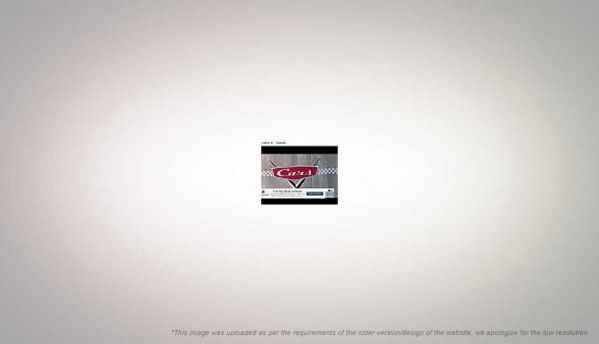Pirated movies appear again on YouTube, including Fast 5, Scream 4

So-called "cammed" versions of recent movies Fast Five and Scream 4, together with at least twenty-five other feature films, have made it past Google's anti-piracy technology and onto YouTube.
 Survey
SurveyMovies including Disney/Pixar's Cars, Dreamworks' Kung Fu Panda 2, and Columbia Pictures' Black Hawk Down are also available for viewing on YouTube. In all, PCMag.com found twenty-five full-length feature films, with more cropping up with every click.
The available movies seem to prove that Google's decision to eliminate upload time limits for trusted users may have backfired, with certain users uploading several films along with more innocuous videos. It may also weaken Google's relationship with Hollywood, which has strengthened in the past months. Google recently added top-tier movie rentals along with 20,000 licensed movie clips.
When asked to comment, representatives for NBCUniversal's Universal Pictures, which distributed Fast Five, said they were "looking into it". Representatives for The Weinstein Co., which owns Dimension Films, also did not comment. Representatives for Disney and Pixar could not be reached for comment.
"Go find that movie you wrote and filmed last year and share it with the world!" YouTube said last year in a blog post. "Or upload your son's championship high school basketball game or the insightful lecture you gave last year on the emerging economics of green tech. As long as it's your original content, it's fair game regardless of length."
[RELATED_ARTICLE]
The uploaded movies clearly are not. Although some users have attached disclaimers, such as "For Entertainment Value Only," the movies are clearly either uploaded from a DVD or from a camcorder surreptiously brought into a movie theater. In the case of Fast Five, two separate versions of the same movie were available: one in Hindi, and the other in English.
Unlike previous examples of pirated movies that have appeared on YouTube, the movies aren't named deceptively in an attempt to throw off YouTube. The page where Scream 4 has been uploaded to, for example, is named "Scream 4 2011".
Some of the movies are absurdly easy to find, in fact. And once inside the network of pirated movies, new full-length movies keep revealing themselves. Type in "Cars full movie," for example, and a 720p, high-definition version of the Disney/Pixar classic online appears as the first result. If a user clicks on the link and begins watching the movie, suggested links to the right also lead to Kung Fu Panda, Monsters Inc., and a stitched-together compendium of all three of Disney's The Lion King movies.
The extent to which piracy hurts movie studios remains unclear, with one widely touted FBI study claiming that $200 billion to $250 billion is lost each year because of piracy, which a 2010 GAO study debunked.
MarkMonitor, a Web site that specializes in "enterprise brand protection," said a January study of the most-trafficked domains that engaged in digital piracy revealed three sites – rapidshare.com, megavideo.com, and megaupload.com – that combined yielded 21 billion pageviews per year. Rapidshare later threatened to sue MarkMonitor for defamation.
However, YouTube earned a reputation for fostering piracy early in its existence, when the company gained traffic and attention for pirated clips of popular TV shows and movies. YouTube later implemented a ten-minute upload limit for clips as a way to dissuade piracy, and also installed Content ID, which allowed content creators an automated method of taking down infringing content.
How YouTube's anti-piracy detection works
Basically, Content ID requires a "fingerprint" or reference file of the copyrighted movie to be supplied to YouTube in order for it to be automatically blocked. Rights holders can also either request that individual films be taken down, or automatically supply the "fingerprint" as the movie, TV show, or song is broadcast. Without the fingerprint, YouTube can not automatically block the content.
"Our Content ID system works by checking user-uploaded videos against reference files provided by rights owners prior to publication on YouTube," a Google spokesperson said in a statement. "If the system finds a match, the rights holder determines the policy applied to that video — either block, track, or make money from the video using ads."
On Friday, Google also settled copyright-infringement claims brought by the National Music Publishers Association over the unauthorized use of music videos on the company's YouTube website.
"YouTube suspends user accounts that have multiple claims of copyright infringement against them," the spokesperson added. "In each case, the user is notified of a strike on their account and has the opportunity to file a counter-notification if there's been a mistake or misidentification."
And the process itself can move quickly: within minutes of asking NBCUniversal about Fast 5 in Hindi and Fast 5 in English, the videos were blocked on copyright grounds. Before that, however, YouTube's statistics show that the two videos combined were viewed nearly half a million times. A number of software utilities say that they can also allow videos played on YouTube to be downloaded, theoretically allowing those videos to be pirated further.
Some popular movies, including The Hurt Locker, which was the subject of a massive copyright infringement action, could not be found on YouTube, along with blockbusters like Avatar and recent films such as Cars 2 and The Green Lantern.
As of press time, however, a number of films remain on YouTube, although Google is expected to act quickly to take them down. We've embedded Cars, below, as proof. And, as of press time, the links to Scream 4, Kung Fu Panda 2, Black Hawk Down, Monsters Inc., The Prestige, and Hero were working.
Editor's Note: This story has been updated to clarify how Content ID works.
Copyright © 2010 Ziff Davis Publishing Holdings Inc.

